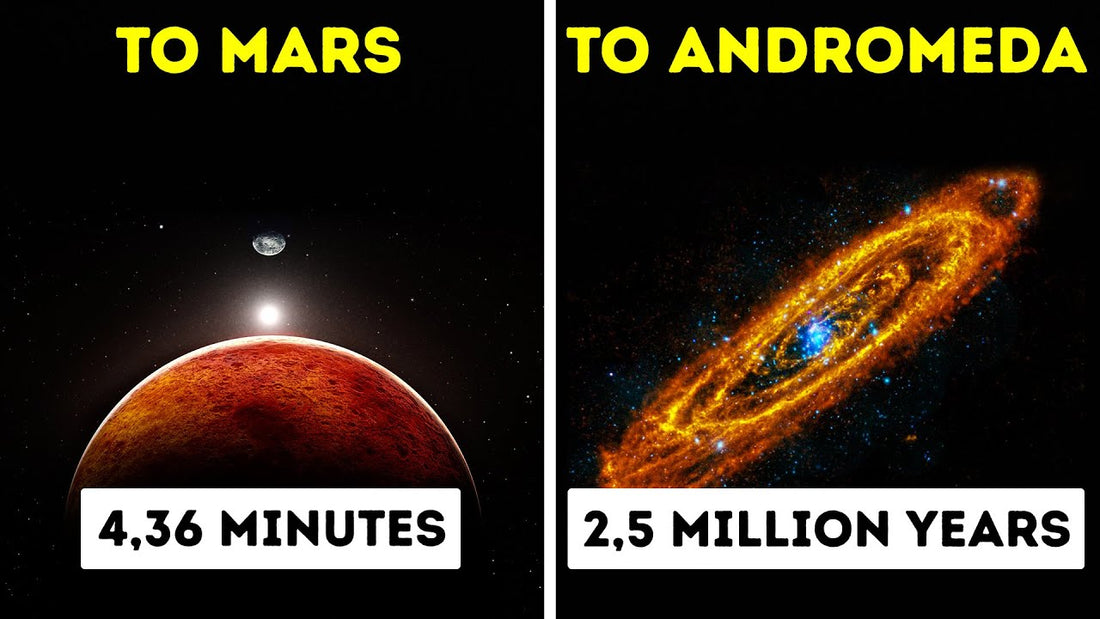
If We Travelled At The Speed Of Light How Far Could We Go?
Share
It is that time of the week and we have selected an interesting question from a faithful follower about the very exciting premise of space exploration.
"Hi ARSE, I was wondering what Uranus' deal is? I mean, what is Uranus made of? Is there anything in Uranus?" - Patricia
Hi Patricia and thank you for inquiring about the current state of space exploration, which is almost always at the forefront of our minds.

Referencing the above, you'll get an idea how hopelessly distant we are from our fellow galaxies and even to the edge of our own.
Short answer: 94% of the universe's galaxies are still permanently out of our reach since many are 18 billion light-years away. Even at lightspeed.
Of course, we have no tech that can actually do this.
But if we did…
Rough calculations below, so forgive me.
To accelerate at 1g and then decelerate at 1g to arrive at a destination, it would take :
- around 0.95 years to travel 1 light year and come to a stop there.
- a little less than 27 years to travel to a point 1 million light-years away and stop.
- It would take approx. 40 years to travel 1 billion light-years and stop.
- 53.6 years to go 1 trillion light-years and stop.
- 62.5 years to go 1000 trillion light-years and stop.
What's most interesting is that the distance and the time it takes are relative.
Let's say you travel as above.
To us back on Earth, your speed will never look faster than light, and we'll see you take billions of years to make the journey.
However… That’s not what you see!

Thanks to the Theory of Relativity, we now understand that the faster you go, the closer distant things become.You can bring them arbitrarily close as you approach the speed of light. Of course, having all those stars and all that up-shifted radiation coming in your front windscreen might be a tad disconcerting.
See the below for further explanation.
See the way the squares ahead of the dot (you) are longer?
This is is bringing objects closer to you as above.

Also, your clock's definition of ‘time’ will tick differently than it would for an earthbound person. I’ll have much more “time” to cover that “shorter” distance.
Make sense?
I hope so.
Thanks for the question Paula and thanks for playing Ask ARSE!
#Space_Aus




